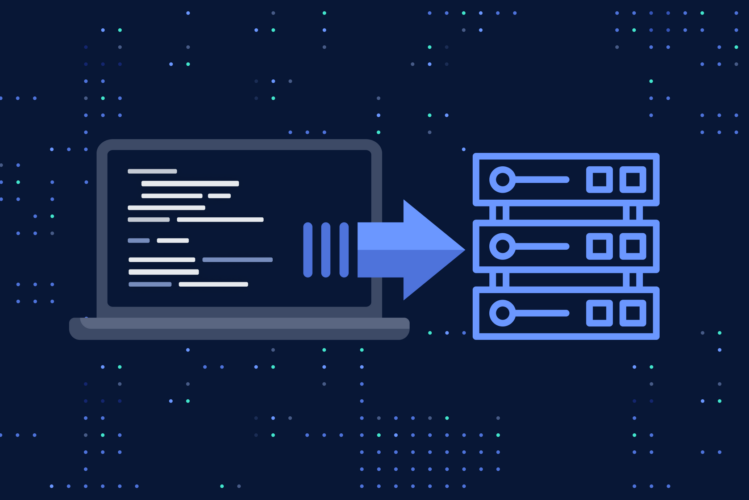When we talk about the backbone of modern software development, platform engineering often takes center stage. It’s the silent force that streamlines the creation and deployment of software applications, making it a crucial area for tech companies to master. Understanding platform engineering is not just about keeping up with the tech world; it’s about shaping it.
Page Contents
So What Is Platform Engineering?
A specialized field dedicated to constructing and maintaining a robust groundwork for software applications. Imagine it as the groundwork laid down before a grand performance; platform engineers are the maestros ensuring that the entire software development process unfolds seamlessly.
Their expertise spans a broad spectrum, from the meticulous management of underlying infrastructure to the precise coordination of deployment pipelines, all essential for the seamless execution of software operations. For a deeper dive into the intricacies of platform engineering, visit https://duplocloud.com/blog/what-is-platform-engineering/.
It’s Evolution

Source: linkedin.com
The roots of platform engineering are as old as software development itself, but it’s only in recent years that it has crystallized into a distinct field. From the early days of bespoke servers to today’s cloud-based ecosystems, platform engineering has evolved to meet the demands of ever-changing technology landscapes. The current trend leans heavily towards automation, microservices, and continuous delivery, pointing to a future where agility and speed are paramount.
Key Components
At the heart of platform engineering lie several key components. Infrastructure management is the bedrock, ensuring that all hardware and software resources are optimized and available. Then there’s the DevOps culture, which blends development with operations to streamline processes. CI/CD pipelines automate the integration and delivery of code, while containerization and orchestration tools like Docker and Kubernetes have revolutionized how applications are deployed and scaled.
Monitoring and observability keep a vigilant eye on systems, ensuring performance and reliability. Security and compliance are non-negotiable, guarding against ever-present cyber threats. Lastly, scalability and performance optimization ensure that platforms can grow and adapt without losing a step.
Tools and Technologies

Source: blog.gitguardian.com
The toolbox of a platform engineer is vast and varied. Infrastructure as Code (IaC) tools like Terraform and Ansible allow for the provisioning and management of infrastructure through code. Docker has become synonymous with containerization, enabling applications to run in isolated environments.
Kubernetes stands out in orchestration, managing containerized applications at scale. Monitoring tools like Prometheus and Grafana provide insights into system performance, while security tools such as Vault handle sensitive data protection. Each tool has its niche, and selecting the right one depends on the specific needs of the platform.
Best Practices
Creating robust platforms is an art that requires a blend of technical skills and strategic thinking. Best practices in platform engineering often revolve around the principles of simplicity, repeatability, and reliability. Building systems that are easy to understand and maintain is key.
This simplicity goes hand in hand with automation, which ensures that processes like testing and deployment can be repeated without manual intervention, reducing the risk of human error. Reliability is achieved through rigorous testing and monitoring, ensuring that any issues can be detected and addressed promptly.
Collaboration is another cornerstone of successful platform engineering. The convergence of development, operations, and now security into DevSecOps underscores the importance of a team-oriented approach where communication is seamless and responsibilities are shared. This collaborative spirit extends to the continuous sharing of knowledge and skills within the team, fostering an environment where continuous improvement is part of the culture.
Challenges and Common Pitfalls
Platform engineering is not without its challenges. One of the biggest hurdles is keeping up with the rapid pace of technological change. Engineers must be agile learners, adapting to new tools and practices as they emerge. Another common pitfall is over-engineering solutions, which can lead to unnecessary complexity and maintenance burdens. It’s crucial to strike a balance between building for the future and keeping the present system maintainable.
Overcoming these obstacles often requires a strategic approach, where decisions are made based on clear objectives and a thorough understanding of the trade-offs involved. It also involves a willingness to fail and learn from those failures, as this is often where the most valuable insights are gained.
The Future

Source: einfochips.com
Looking ahead, platform engineering is set to become even more integral to the software development lifecycle. With the rise of cloud-native technologies and the increasing importance of cybersecurity, platform engineers will need to be at the forefront of innovation. Emerging trends like GitOps, where infrastructure and operations are managed in the same way as code, are indicative of where the industry is heading—towards more automation, more integration, and more collaboration.
Anticipating the future challenges and opportunities in platform engineering involves understanding that the field is always in flux. The engineers who will thrive are those who can adapt, learn, and apply new knowledge to solve the complex problems of tomorrow.
FAQ
How does platform engineering alter traditional IT operations roles?
It introduces automation and self-service platforms, requiring IT operations to adapt by developing software skills to support a DevOps culture. This evolution expands the role of IT operations from maintenance to active development support, emphasizing collaboration and continuous delivery.
What career opportunities does platform engineering offer?
Career paths range from entry-level positions to senior roles like platform architects or leadership positions overseeing DevOps strategies. Progression typically involves deepening expertise in cloud technologies, automation, and scalable system design.
In what ways does platform engineering affect customer experience?
It indirectly enhances customer experience by providing developers with the tools to deploy software more quickly and reliably, leading to faster delivery of new features and a more agile response to market demands.
What ethical considerations are crucial in platform engineering?
Ethical mandates adherence to data protection laws, embedding privacy into platform design, and ensuring data security. It also involves considering the societal impacts of automation and AI, such as effects on employment.
Conclusion
Throughout this exploration of platform engineering, we’ve seen its pivotal role in modern software development. From the evolution of its practices to the anticipation of future trends, platform engineering stands as a testament to the ingenuity and adaptability of tech professionals. As the digital landscape continues to evolve, its importance is only set to increase, making it an exciting and essential field for anyone passionate about technology’s potential.
For those looking to make their mark, the path is clear: embrace the principles, master the tools, and be prepared to adapt. The future of platform engineering is bright, and it’s calling for innovators ready to build the platforms of tomorrow.





